- About Us
- Columns
- Letters
- Cartoons
- The Udder Limits
- Archives
- Ezy Reading Archive
- 2024 Cud Archives
- 2023 Cud Archives
- 2022 Cud Archives
- 2021 Cud Archives
- 2020 Cud Archives
- 2015-2019
- 2010-2014
- 2004-2009
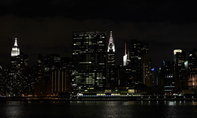 |
(Mar 2020) Ezy Reading: |
Let’s start by asserting the obvious: perspective is everything.
In the waning weeks of the World War II Nazi occupation of Greece, my father and grandparents were forced to take refuge under a bridge in Piraeus shielding from the ongoing bombardment of Athens by British forces in the nearby harbor.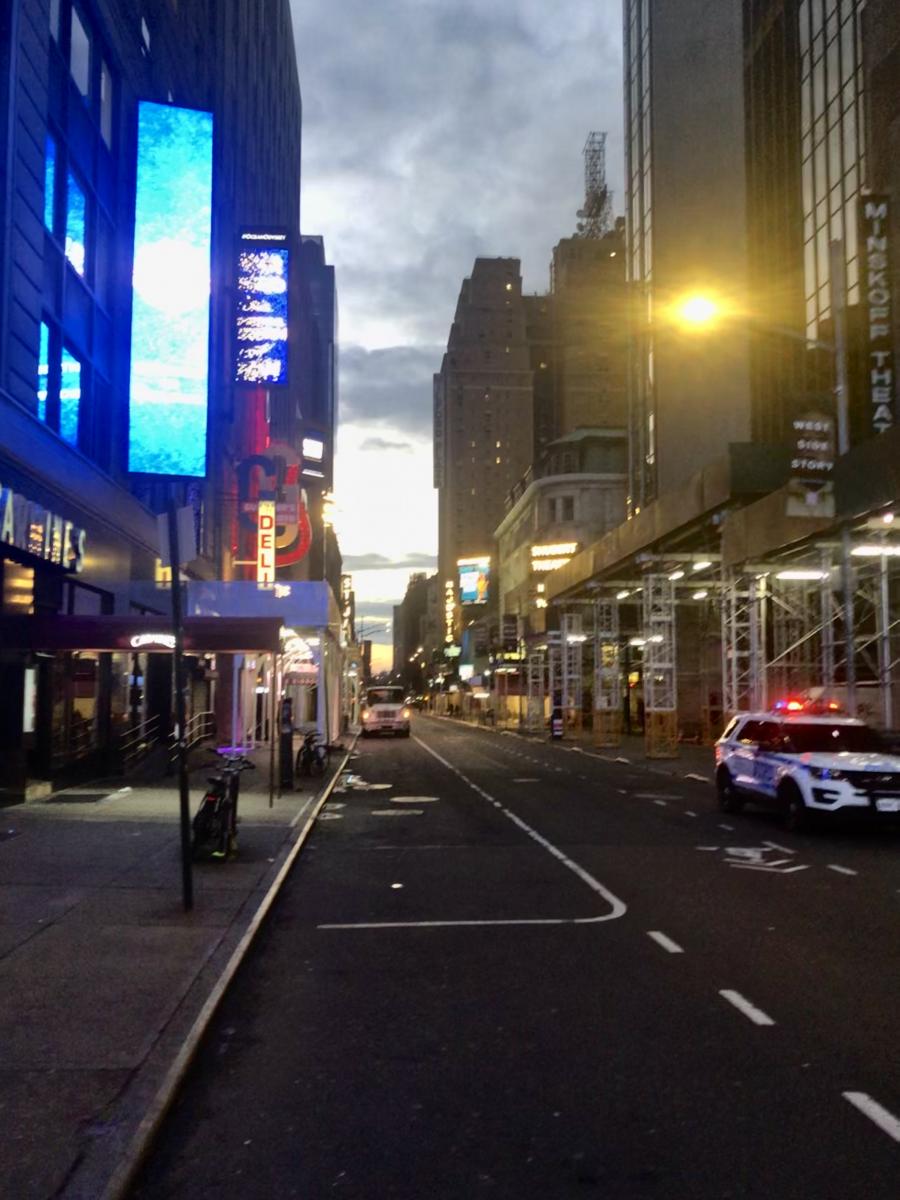 Starving and depleted of resources, they and others had to endure the added indignity of living on the other side of a tattered sheet that neighbors who considered themselves of better class had hung to separate their group from the perceived ‘rabble’ also hiding out under that bridge. Even amid the death and destruction swirling around them, social hierarchies were somehow still coming into play, exploding shells be damned. Up to that point, my family had lost everything they owned, been malnourished and wracked with disease, lost a brother’s sanity to the Battle of Crete and seen countless loved ones and neighbors executed before their eyes. All the same, I recall my grandmother years later minimizing their suffering with a stoicism that was at once remarkable as it was unfathomable: “You don’t know true suffering until you know true suffering. But there will always be someone going through worse. Never forget that.”
Starving and depleted of resources, they and others had to endure the added indignity of living on the other side of a tattered sheet that neighbors who considered themselves of better class had hung to separate their group from the perceived ‘rabble’ also hiding out under that bridge. Even amid the death and destruction swirling around them, social hierarchies were somehow still coming into play, exploding shells be damned. Up to that point, my family had lost everything they owned, been malnourished and wracked with disease, lost a brother’s sanity to the Battle of Crete and seen countless loved ones and neighbors executed before their eyes. All the same, I recall my grandmother years later minimizing their suffering with a stoicism that was at once remarkable as it was unfathomable: “You don’t know true suffering until you know true suffering. But there will always be someone going through worse. Never forget that.”
Those words have remained front of mind during the past five weeks that I’ve now been socially isolating under lockdown in my Hell’s Kitchen apartment here in the heart of New York City. I have not endured suffering of any kind compared to what so many people are currently experiencing both here and around the world.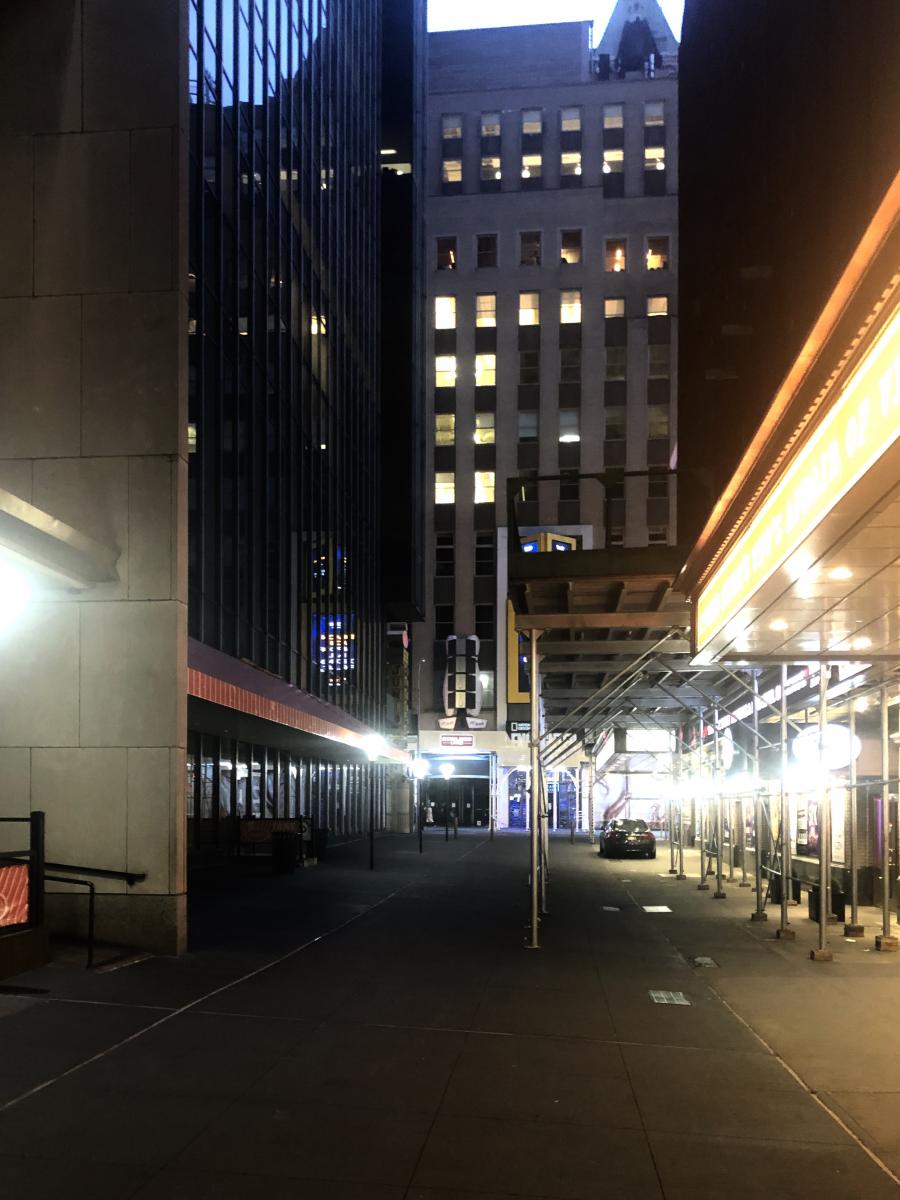 Rather, at times it has almost felt like I’ve been an unwitting participant in some sort of bizarre social experiment - 35 days since I last saw anyone I know in person, one last drink with pals at a midtown dive bar before heeding real attention to the warnings and opting to stay home and lay low. When is the last time I went a month without seeing someone I knew in person? Has that ever happened in my life, even when traveling for extended periods? One friend jokingly expressed a fear that she may have already been long enough in isolation as to forget how to deliver a hug.
Rather, at times it has almost felt like I’ve been an unwitting participant in some sort of bizarre social experiment - 35 days since I last saw anyone I know in person, one last drink with pals at a midtown dive bar before heeding real attention to the warnings and opting to stay home and lay low. When is the last time I went a month without seeing someone I knew in person? Has that ever happened in my life, even when traveling for extended periods? One friend jokingly expressed a fear that she may have already been long enough in isolation as to forget how to deliver a hug.
I have been beyond fortunate through this crisis- I live in a safe apartment building and have more than enough supplies to make it through for weeks. Though furloughed from work, my health coverage remains protected. Thanks to technology there is no shortage of friends and family who I can speak with daily. I have a cell phone. Internet. Cable. All the while, outside the comfortable confines of this apartment, people are enduring inconceivable hardship.
Over the past few weeks, the sound of ambulance sirens has grown more constant, keeping in step with the growing number of individuals who have succumbed to COVID-19. 7 deaths. 45 deaths.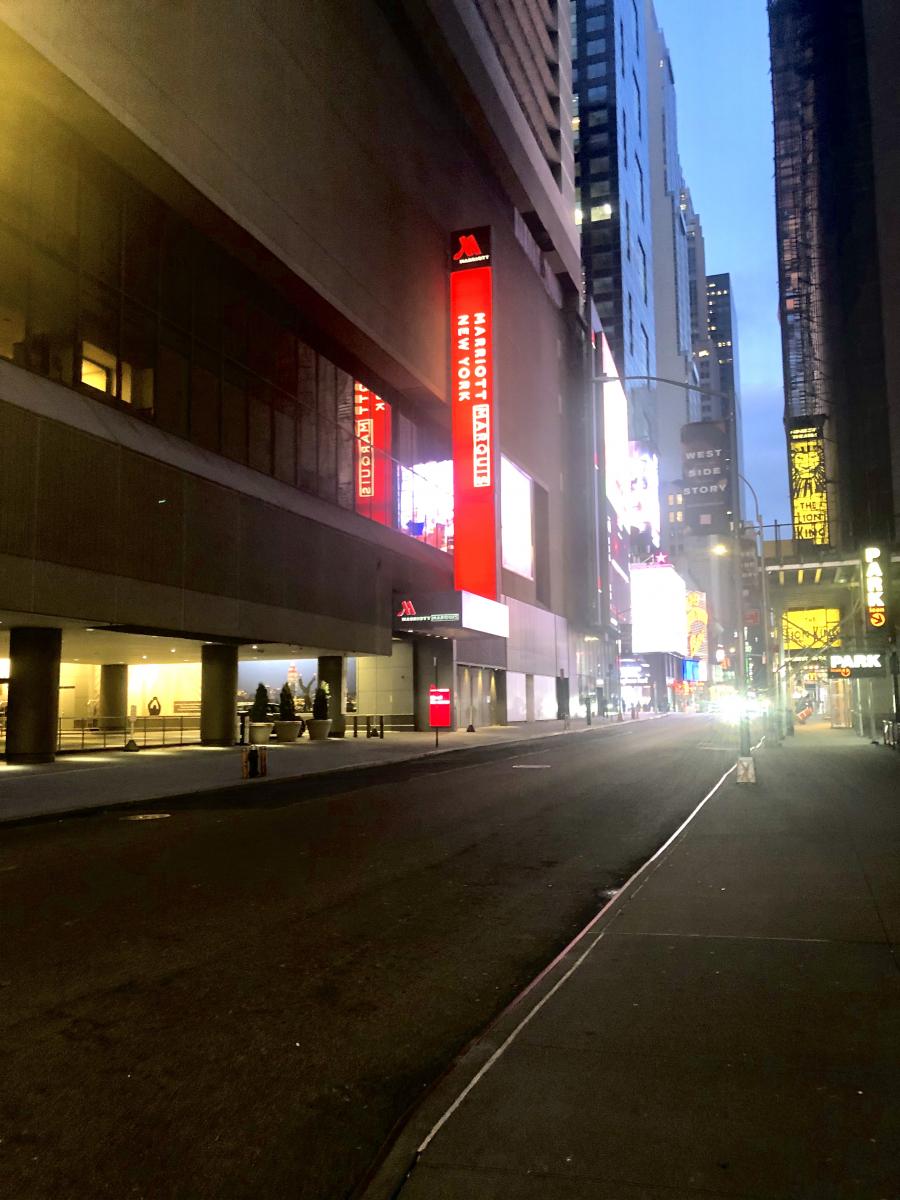 200. Nearly 800 in a single day. Over 10,000 now dead in New York City. A few weeks back, the USNS Comfort hospital ship docked at Pier 90, just two blocks from me, arriving with a flurry of accompanying choppers and (non-social distancing) onlookers. Since the ship started accepting patients ill with coronavirus, those ambulance sirens have been piercing through an otherwise quiet Hell’s Kitchen at even greater pace.
200. Nearly 800 in a single day. Over 10,000 now dead in New York City. A few weeks back, the USNS Comfort hospital ship docked at Pier 90, just two blocks from me, arriving with a flurry of accompanying choppers and (non-social distancing) onlookers. Since the ship started accepting patients ill with coronavirus, those ambulance sirens have been piercing through an otherwise quiet Hell’s Kitchen at even greater pace.
Much of the city is a ghost town. In those rare intermissions between sirens, birdsong has replaced the din of honking horns. Pollution has plummeted, and at night one can clearly see more stars overhead than normal. But on those occasions when I have ventured out, empty New York streets are more unsettling and eerie than comforting, severely in contrast to the hustle and bustle that makes this city so constantly, wonderfully and, at times, infuriatingly alive. The absence of pedestrians and traffic and the shuttered businesses speak to a grim truth that outweighs any joy to be found in this suddenly uncongested city. Far more pleasing is the cacophony that takes over Manhattan every night at 7pm - cheers, whistles, clanging and banging of pots, and dozens upon dozens of New Yorkers yelling ‘THANK YOU!’ with gusto from their open windows, balconies and fire escapes, a nightly, united call of gratitude for the city’s front-line workers.
But one can hunker down only so long unaffected. The scope of this tragedy has inevitably come to impact people more directly than through the mere inconvenience of being asked to stay indoors. Every hint of fever or sore throat wreaks havoc on already frayed nerves -terrified of what may happen if one actually does get sick. One friend -a utility worker- lost two colleagues in a week before finally deciding to stay home herself. Bills and rent would have to be sacrificed.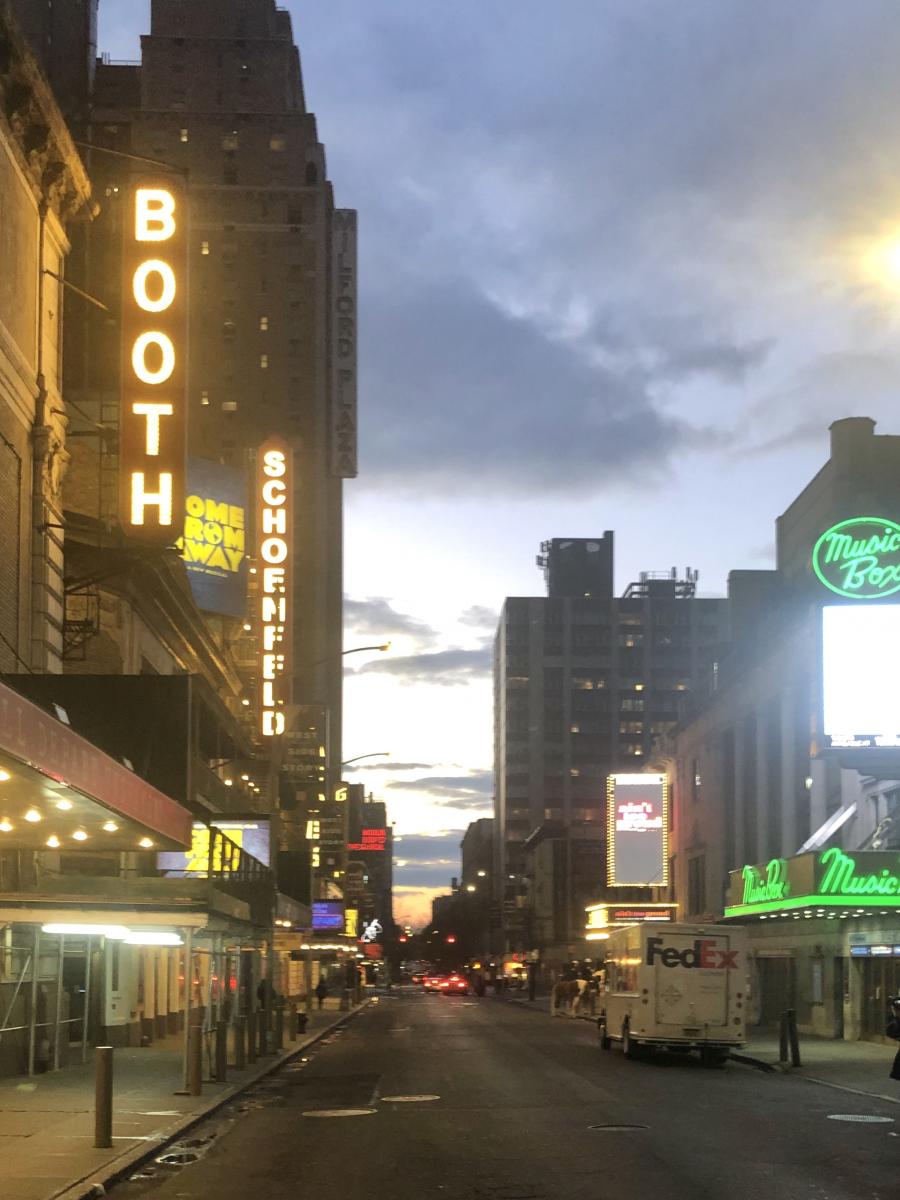 I know dozens who have been furloughed or lost their jobs, and the calls have rolled on into the night consoling friends who worry about the fate of their careers, small businesses, and savings. At a time when nearly 20% of the NYPD is out sick, I can’t help but be concerned for those family members and friends still out there– the nurses, doctors and other medical practitioners, police officers, firefighters, social workers, checkout cashiers and delivery drivers. They are exhausted and heroic, undeterred yet traumatized, angry and spent, all at once.
I know dozens who have been furloughed or lost their jobs, and the calls have rolled on into the night consoling friends who worry about the fate of their careers, small businesses, and savings. At a time when nearly 20% of the NYPD is out sick, I can’t help but be concerned for those family members and friends still out there– the nurses, doctors and other medical practitioners, police officers, firefighters, social workers, checkout cashiers and delivery drivers. They are exhausted and heroic, undeterred yet traumatized, angry and spent, all at once.
Even if one has remained beyond the reach of this tragedy, who could remain unaffected by the increasing number of posts on social media asking you to pray for a loved one in the ICU, or hearing the grim hum of a refrigerator truck parked out front of their hospital as a flow-over morgue, or seeing the footage of mass graves on Hart Island in the Bronx? Zoom calls may help keep us at a safe social distance, but we aren’t far away enough to stop from recognizing that what’s currently real out there is all too surreal.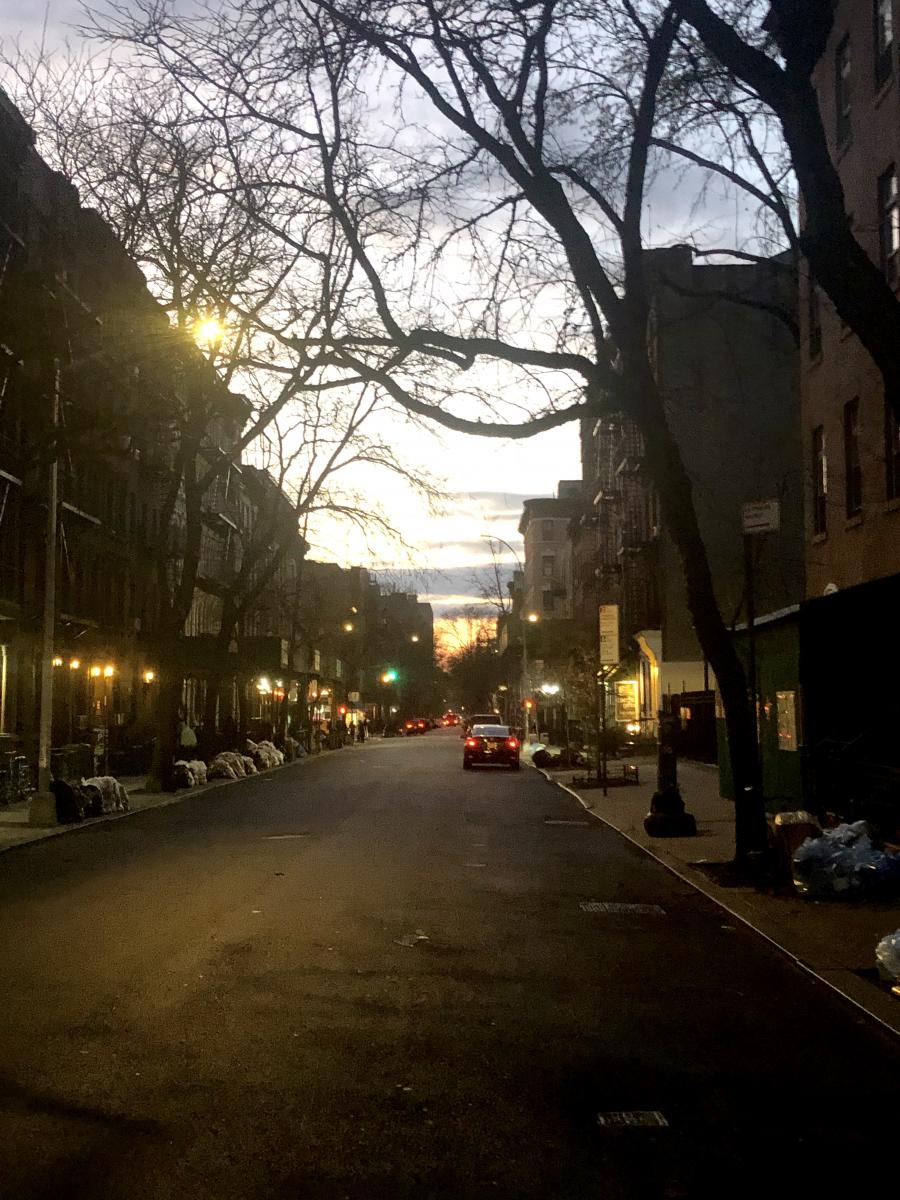
It’s in the blessings that we find solace. The heroism, fortitude and drive of so many is an inspiration. From their apartments, thousands are reconnecting with others in ways they haven’t for years. Otherwise benign video calls now instead lift our spirits, turning Friday and Saturday nights (and, let’s admit, Sundays to Thursdays) into happy hours, date night, jam sessions, surprise birthday parties and apartment tours. I’ve never felt closer in so many ways to family -and countless friends- than in this moment. Everything takes on a different meaning in the face of perspective.
Palliative care nurses often speak of the most common regrets and wishes of the dying heard through years of work. They tend to be the simplest of things: to have been more courageous and honest with feelings, to have worked less and embraced happiness more. To have had the courage of their convictions. To have spent more time with family and friends. Surely it would be a blessing if this wretched pandemic gifted us with better, more meaningful perspective. Confined to my Hell’s Kitchen apartment, I miss friends and family. I miss my girlfriend. I miss those simple pleasures we often take for granted. But I also know I’m doing just fine compared to so many others. I don’t miss skewed priorities, unending, unnecessary distractions or misspent energy. I hope I can cling to this perspective.
For from the past five weeks I also know of one absolute: the next hug I get to give may well be the best I’ve ever given.
Ezy Reading is out every month.
